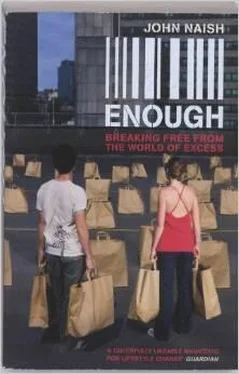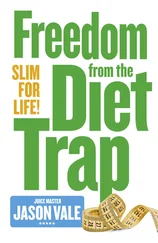John Naish - Enough - Breaking Free from the World of Excess • Abstract
Здесь есть возможность читать онлайн «John Naish - Enough - Breaking Free from the World of Excess • Abstract» весь текст электронной книги совершенно бесплатно (целиком полную версию без сокращений). В некоторых случаях можно слушать аудио, скачать через торрент в формате fb2 и присутствует краткое содержание. Год выпуска: 2009, Жанр: Психология, на английском языке. Описание произведения, (предисловие) а так же отзывы посетителей доступны на портале библиотеки ЛибКат.
- Название:Enough: Breaking Free from the World of Excess • Abstract
- Автор:
- Жанр:
- Год:2009
- ISBN:нет данных
- Рейтинг книги:3 / 5. Голосов: 1
-
Избранное:Добавить в избранное
- Отзывы:
-
Ваша оценка:
- 60
- 1
- 2
- 3
- 4
- 5
Enough: Breaking Free from the World of Excess • Abstract: краткое содержание, описание и аннотация
Предлагаем к чтению аннотацию, описание, краткое содержание или предисловие (зависит от того, что написал сам автор книги «Enough: Breaking Free from the World of Excess • Abstract»). Если вы не нашли необходимую информацию о книге — напишите в комментариях, мы постараемся отыскать её.
Anyone who feels overwhelmed by the sheer amount of choice he or she has
Anyone who feels compelled to buy the newest toys and gadgets
Who's the author? John Naish is a journalist for the
who writes about such topics as health, body and soul. He is also the author of
.
Enough: Breaking Free from the World of Excess • Abstract — читать онлайн бесплатно полную книгу (весь текст) целиком
Ниже представлен текст книги, разбитый по страницам. Система сохранения места последней прочитанной страницы, позволяет с удобством читать онлайн бесплатно книгу «Enough: Breaking Free from the World of Excess • Abstract», без необходимости каждый раз заново искать на чём Вы остановились. Поставьте закладку, и сможете в любой момент перейти на страницу, на которой закончили чтение.
Интервал:
Закладка:
Fortunately, we can easily trick ourselves into eating less. One easy strategy is to simply use smaller plates! Studies have shown that people eat less from smaller plates, as their portions appear larger in relation to the plate, thus making them feel as if they’ve eaten more.
The constant craving for new material things is indicative of unhappiness.
We’re genetically predisposed to consume as much as possible. Indeed, collecting and hoarding are as old as humankind. Just look at the millions of hand-axes discovered by archaeologists in neolithic caves. They weren’t just tools, but also the status symbols of our ancestors!
But why would we even want a hand-axe that we don’t need?
Studies have shown that when we’re "on the hunt" for something – whether it’s a deer or a new pair of shoes – our brains are flooded with the hormone dopamine, which causes us to feel excited.
However, in the case of shopping, our dopamine levels sink once we’ve made the purchase, which often causes us to often regret our decision. In order to remedy this disappointment, we often head back to the store to experience the positive feeling of buying something new.
Furthermore, we’re also prone to consume more than we need because we link material possessions with self-improvement.
Whenever we buy something new, we expect it to make our lives easier, more interesting or just better. So, when someone buys a fancy new sports car, he likely hopes subconsciously that this purchase will also come with a new, successful, rich and up-to-date version of himself.
Most of the times, these expectations don’t come true. And even when our new purchases do immediately make us happier, we eventually return to our previous level of happiness through a process referred to by scientists as hedonistic adaptation.
After the short burst of excitement from purchasing a new sports car, our protagonist will likely realize that he is now neither richer, more successful nor happier than he was before. No worry! He’ll just turn his attention to a new item – perhaps a yacht – to fulfill these expectations.
A consequence of this kind of consumption is a home filled with junk and rapidly increasing amount of waste. Just think that there’s a massive island of waste three to four times as large as Germany floating around in the Pacific Ocean!
Work is our new addiction.
In Europe and the US, workaholism, i.e., the tendency to work to the bone and define ourselves in terms of our jobs, is on the rise. Yet, despite the widespread belief that hard work and industriousness are signs of virtue, the reality is that all that hard work can actually be bad for our health.
For example, studies have shown that regularly working 41 hours per week or more increases the risk for high blood pressure.
There are even programs to treat workaholism, such as Workaholics Anonymous, which regards workaholism as a serious condition and has grown in popularity in Britain in recent years.
However, unlike other addictions (e.g., alcoholism), overworking can’t be cured through cessation. We simply can’t not work: our livelihoods depend on our income, and society demands that we stay “busy.”
But why do we overwork ourselves? Well, workaholism is born from other problems: workaholics expect that working more will help them feel better – but this simply isn’t so.
Consider, for instance, that divorce lawyers are busiest after the holidays. Psychologists explain this phenomenon by pointing out that people who have problems in their marriages tend to work longer in order to minimize their time at home. During the holidays, however – when people generallyonly spend time at home – these relationship problems become glaringly obvious.
In these cases, even overworking can’t save a collapsing marriage!
Unfortunately, the expectation that more work will lead to greater happiness and fulfillment rarely works out, no matter how successful we become in our careers. Even promotions don’t generally make us happier. In fact, studies show that the satisfaction we get from our jobs hardly depends on where we stand within the hierarchy.
Similar studies show that even those who make it onto the Forbes List feel only slightly better about their lives than the average person.
Our seemingly limitless options and search for the perfect choice makes us miserable.
A hungry donkey stands between two equally large piles of delicious hay. Unable to decide which pile to choose, it eventually dies of hunger.
This silly thought experiment first posed by fourteenth-century French philosopher Jean Buridan illustrates how free choice can become a burden when the alternatives are too similar.
While free choice is generally a good thing, an overabundance of options can be exhausting, because we feel that with every choice we might miss another, possibly better, option.
This is especially problematic today, as our modern world is full of products which differentiate themselves with small added features and extras.
Imagine, for instance, that your camera broke and you need to replace it before your upcoming vacation. As you start your quest for a new camera online, you’ll easily become confused by the sheer number of possible features a camera can have – most of which you wouldn’t need anyway.
So how do you make the right choice? You could spend an eternity comparing cameras trying to find the right one!
Now compare this with choosing between spending your next vacation on the ski slopes or a tropical beach. Likely, this decision will be far easier to make. In fact, studies have shown that deciding between two very different kinds of things is far easier for us than decisions where alternatives are similar.
Unfortunately, we’re hardly ever faced with two distinctly different choices. Instead we face the prospect of near infinite choice, and this has serious consequences for our behavior.
For example, people nowadays rarely keep long commitments – we changes job and apartments like the wind. When it comes to personal relationships, people are more likely now to not want to bind themselves to a single partner exclusively for a long period of time.
In the USA, more and more marrying couples don’t use the traditional vow “till death do us part.” Instead they want to stay together for “as long as our marriage shall serve the common good.”
Infinite happiness is neither possible, healthy nor desirable.
The last few decades have seen the publication of an astonishing number of books on finding fulfillment: our goal in life seems to be becoming happy, fulfilled and satisfied.
Yet, nobody can be happy forever. In fact, depression, worry and sadness are a necessary part of the human condition.
Many studies have shown that, throughout history, people who demonstrate caution lived longer than those who didn’t worry at all. Indeed, an attitude of depressive realism, i.e., a moderate dose of pessimism, can actually help you flourish:
While very optimistic people tend to overestimate both their skills and their luck – and thus take unnecessary risks (like BASE jumping) – depressive realistic people can better predict the outcome of a given situation, and therefore have better chances to live longer (don’t jump off a cliff, and you won’t die of a fall).
What’s more, despite our popular understanding, unhappiness is not a failure, but a totally natural mechanism that warns us when things aren’t going well. In order to move past it, you should use the opportunity to reflect on your current life situation, rather than turn to pills.
Our obsession with happiness is even more silly when we consider how little influence we actually have over it. Everybody is born with her own unique happiness threshold, which remains quite constant throughout life. In essence, you are born an optimist or a pessimist.
Читать дальшеИнтервал:
Закладка:
Похожие книги на «Enough: Breaking Free from the World of Excess • Abstract»
Представляем Вашему вниманию похожие книги на «Enough: Breaking Free from the World of Excess • Abstract» списком для выбора. Мы отобрали схожую по названию и смыслу литературу в надежде предоставить читателям больше вариантов отыскать новые, интересные, ещё непрочитанные произведения.
Обсуждение, отзывы о книге «Enough: Breaking Free from the World of Excess • Abstract» и просто собственные мнения читателей. Оставьте ваши комментарии, напишите, что Вы думаете о произведении, его смысле или главных героях. Укажите что конкретно понравилось, а что нет, и почему Вы так считаете.












